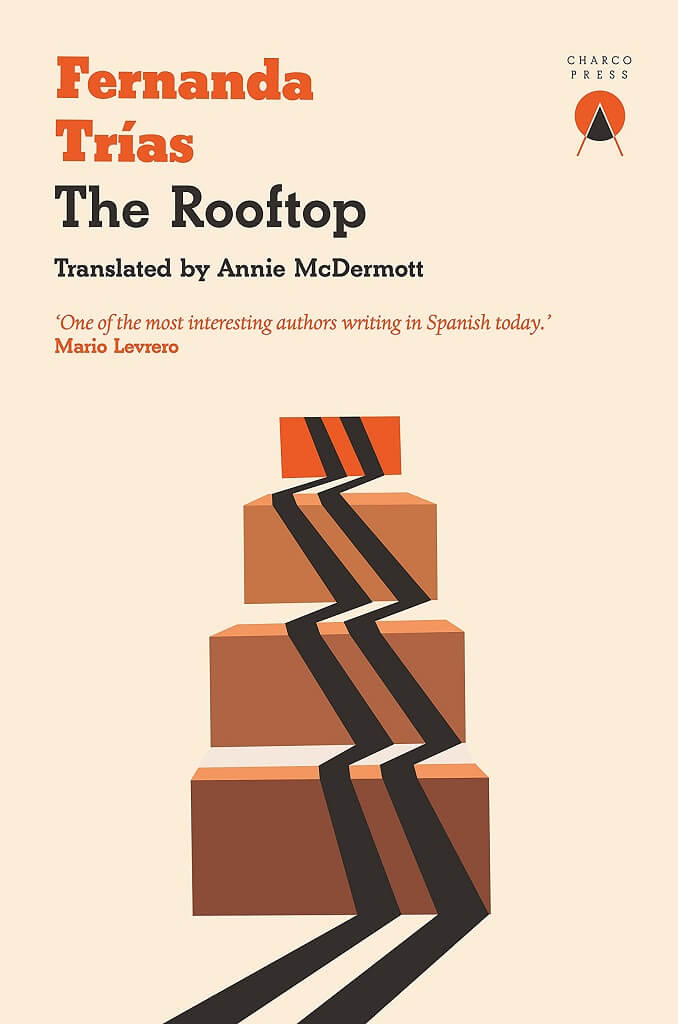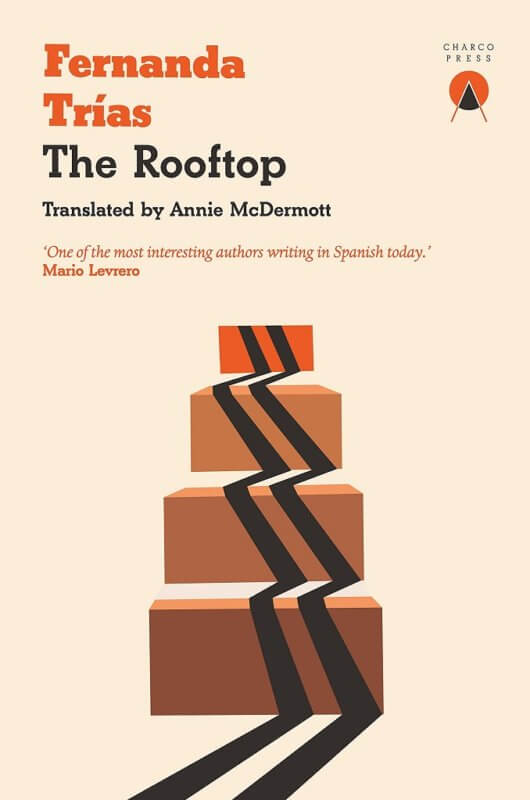30 Sep / The Rooftop by Fernanda Trías, translated by Annie McDermott [in Shelf Awareness]

 In the chilling, spare-but-oh-so-dense novel The Rooftop, Uruguyan writer Fernanda Trías introduces Clara – her name a sharp contrast to her uncertainty, her unknowing – as she recounts the life that she announces on the opening page “came to an end today.” Once upon a time, Clara recalls, “I had a life before this one, a job, a flat, which I now remember nothing about.” For the last four years, she’s been trapped in a small apartment in an unnamed location, caring for her bedridden father and his caged canary ever since his wife, Clara’s stepmother, Julia, died. Clara became mysteriously pregnant and hoped the baby’s arrival could mean “We’ll be a family again,” but the news left Dad “pout[ing] like a petulant child.” He’s more interested in going out, an impossibility that elicits Clara’s rage: “There’s no sea, no square, no church, no nothing. The world is what’s under this roof,” she insists.
In the chilling, spare-but-oh-so-dense novel The Rooftop, Uruguyan writer Fernanda Trías introduces Clara – her name a sharp contrast to her uncertainty, her unknowing – as she recounts the life that she announces on the opening page “came to an end today.” Once upon a time, Clara recalls, “I had a life before this one, a job, a flat, which I now remember nothing about.” For the last four years, she’s been trapped in a small apartment in an unnamed location, caring for her bedridden father and his caged canary ever since his wife, Clara’s stepmother, Julia, died. Clara became mysteriously pregnant and hoped the baby’s arrival could mean “We’ll be a family again,” but the news left Dad “pout[ing] like a petulant child.” He’s more interested in going out, an impossibility that elicits Clara’s rage: “There’s no sea, no square, no church, no nothing. The world is what’s under this roof,” she insists.
Clara, too, stopped leaving, convinced of dangers waiting outside. But at least she has the rooftop to which she occasionally escapes. As long as Julia’s money lasts, downstairs neighbor Carmen delivers groceries – and news, gossip – to the flat. Carmen complains of an inexplicable vendetta with Clara’s next-door neighbors, loud women with louder visitors, including policemen. Without anyone else, Carmen is Clara’s de facto midwife when Florencia – “we always called her Flor” – is born. But soon, Clara’s growing distrust of Carmen escalates into self-inflicted isolation. As the money dwindles, Clara loses electricity and is forced to steal water from the building’s courtyard. And yet, for a while, moments of joy still seem possible – especially in Flor’s and Dad’s unexpectedly delightful exchanges. But paranoia and desperation grow until “there’s nothing of us left.”
Awarded the National Uruguayan Literature Prize in 2002, Trías is lauded as one of Latin America’s most important contemporary literary voices, with multiple award-winning novels and short stories among her oeuvre. The Rooftop marks Trías’s English-language debut, smoothly translated by Annie McDermott. (Charco Press also offers a Spanish-language edition for the first time in the U.S.) When Rooftop was originally published in 2001, Trías’s native Uruguay was in the midst of recession, scarcity, and presidential uncertainty, all linked to Brazil and Argentina’s ongoing economic and political turmoil. While many of the novel’s details remain unspecified, the public dangers, unpredictable police presence, and food shortages are certainly a reflection of reality. Trías deftly turns her brief fiction into universal parable.
Shelf Talker: Award-winning Uruguayan author Fernanda Trías makes her English-language debut with a striking, sparse novel about a trapped young woman whose life “came to an end today.”
Review: Shelf Awareness Pro, September 17, 2021
Readers: Adult
Published: 2001 (Uruguay), 2021 (United States)
